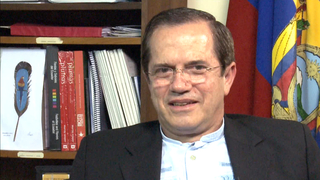
Topics
Venezuelan president Hugo Chavez was forced to resign today after a military coup followed civilian demonstrations that ended in government troops firing on protesters.
National Guard troops and pro-Chavez gunmen opened fire on 150,000 protestors with bullets and tear gas. At least 13 people were killed and over 100 wounded.
The head of Venezuela’s National Guard announced last night the military had taken control of the country, and the chief of staff said military leaders had asked the president to resign.
Details of the coup are unclear. The western press is reporting that unrest came to a head three days ago when Chavez vowed to crush a general strike called by Venezuela’s largest business and labor groups. The groups called the strike to support oil executives who wanted Chavez to sack new management he appointed at the state oil monopoly.
What is clear is that the US has significant interests in the country. Venezuela is the world’s fourth largest oil producer and is the third largest foreign supplier to the US, accounting for 15% of all imports. Chavez has constantly challenged US foreign policy. He was the first elected leader to visit Saddam Hussein since the Persian Gulf War. He provided ideological and economic support for Fidel Castro. Last October, Chavez said the US was “fighting terror with terror” in Afghanistan and displayed photos of dead Afghan children to make his point.
Guest:
- James Petras, Professor of Sociology at SUNY-Binghamton and author of ??Globalization Unmasked: Imperialism in the 21st Century and ??The Nationalization of Venezuelan Oil. He is currently working in Argentina.











Media Options